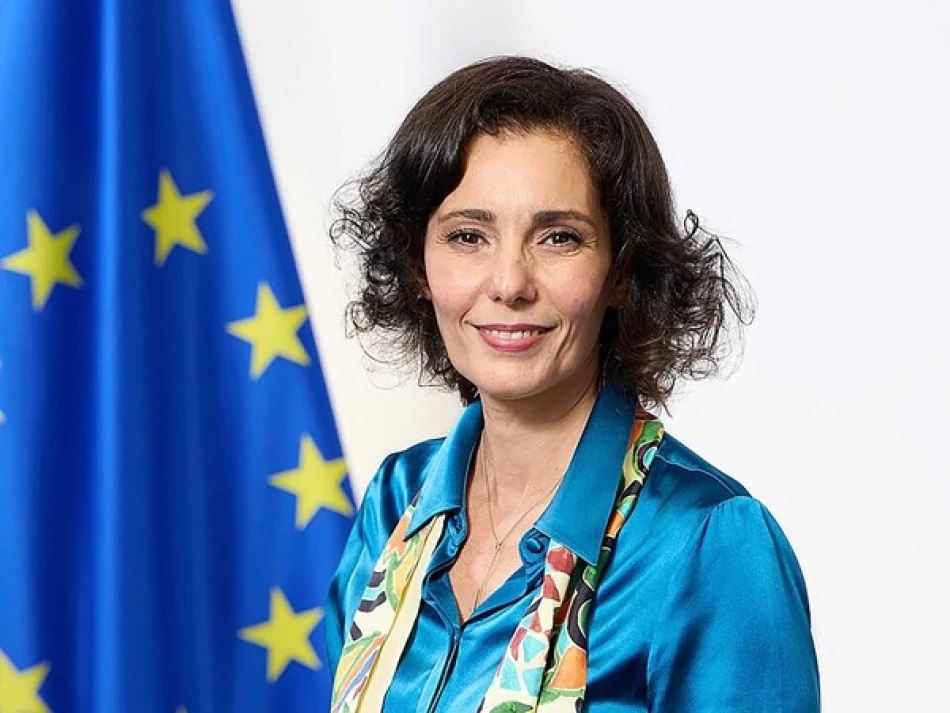
EU Humanitarian Commissioner: Humanitarian Aid Remains a Beacon of Hope Amidst Adversity
EU Humanitarian Chief Warns of Record Violence Against Aid Workers as Global Crises Escalate
European Commissioner for Humanitarian Aid and Crisis Management Hadja Lahbib has issued a stark warning about unprecedented attacks on humanitarian workers, revealing that 2024 became the deadliest year on record with 383 aid workers killed. With 265 deaths already recorded in early 2025, the trajectory suggests an even more devastating toll ahead, highlighting a dangerous erosion of international humanitarian law across global conflict zones.
A Crisis of Protection in Humanitarian Work
The statistics paint a grim picture of the dangers facing those delivering life-saving aid. Beyond the fatalities, 2024 saw 308 humanitarian workers wounded and 125 kidnapped. These numbers represent more than statistics—they reflect a systematic breakdown in the protection of civilians and aid workers that has been enshrined in international law since the Geneva Conventions of 1949.
The European Union's response includes the launch of a "Rapid Response Humanitarian Worker Protection Program," which has provided assistance to 376 individuals across 211 critical incidents. Notably, the program focuses heavily on local workers, who comprise 90% of attack victims—a demographic often overlooked in international protection efforts.
Beyond Aid: The Political Courage Gap
Lahbib's statement goes beyond calling for more funding, emphasizing that humanitarian assistance alone cannot address the root causes of suffering. Her call for "political courage and leadership capable of making peace" reflects a growing recognition within the EU that diplomatic and political solutions must accompany humanitarian responses.
This perspective aligns with broader shifts in how major donors approach crisis response. Rather than treating symptoms through aid delivery, there's increasing focus on addressing the political dynamics that perpetuate conflicts and create humanitarian needs in the first place.
The Impunity Problem
The Commissioner's emphasis on accountability strikes at a core challenge in contemporary conflict zones. The pattern of attacks against hospitals, schools, and civilian infrastructure—alongside the targeting of humanitarian workers—suggests a deliberate strategy to undermine civilian protection.
Lahbib's assertion that impunity encourages further violations reflects lessons learned from conflicts where accountability mechanisms failed to deter attacks on civilians and aid operations. The EU's position implicitly criticizes the international community's inconsistent enforcement of humanitarian law.
The Forgotten Crises Challenge
While acknowledging the EU's position as one of the world's largest humanitarian donors, Lahbib highlighted a persistent challenge: the tendency for international attention to focus on high-profile crises while other emergencies deteriorate away from media spotlight.
This "forgotten crises" phenomenon has long plagued humanitarian response, with funding and attention gravitating toward conflicts that capture public attention while equally severe situations receive minimal support. The EU's approach suggests recognition that sustainable humanitarian response requires more consistent, less reactive engagement across all crisis contexts.
Implications for Global Humanitarian Architecture
The escalating violence against humanitarian workers signals a fundamental challenge to the post-World War II humanitarian system. If aid workers cannot operate safely, the entire framework of international humanitarian response faces potential collapse in the world's most dangerous regions.
For the EU, maintaining its humanitarian leadership role will require balancing immediate life-saving assistance with longer-term investments in conflict prevention and accountability mechanisms. The success or failure of this approach may determine whether the international community can reverse the dangerous trend of attacks on humanitarian operations or whether aid delivery becomes impossible in the world's most vulnerable regions.
Most Viewed News

 Layla Al Mansoori
Layla Al Mansoori






